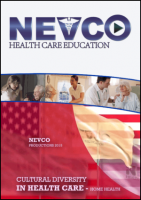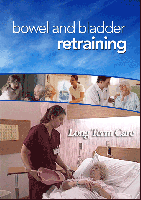Caregiver Provider Basic Training Requirements
By Business Training Media
Being a caregiver is a challenging and rewarding profession. Caregivers provide assistance to individuals who are unable to care for themselves due to age, illness, or disability. They provide a wide range of services, from bathing and dressing to medication management and transportation. However, caregiving is not a job that anyone can do. It requires a specific set of skills and qualities that are developed through caregiver-provider basic training requirements.
Caregiver provider basic training requirements vary depending on the state and the type of care being provided. However, there are some common requirements that most caregivers must meet. In this article, we will explore the basic training requirements for caregivers and why they are essential.
Basic Training Requirements for Caregivers
1. CPR and First Aid Training
One of the most important basic caregiver training requirements is CPR and first aid training. Caregivers must be prepared to respond quickly and effectively in the event of an emergency. CPR and first aid training teach caregivers how to recognize and respond to common medical emergencies, such as choking, heart attacks, and strokes.
2. Medication Management Training
Medication management is another crucial aspect of caregiving. Caregivers must be able to administer medications safely and accurately. This includes understanding the proper dosage, frequency, and administration methods. Medication management training also covers how to identify and respond to medication side effects and adverse reactions.
3. Personal Care and Hygiene Training
Caregivers are responsible for assisting individuals with their personal care and hygiene needs, such as bathing, grooming, and toileting. Personal care and hygiene training teach caregivers how to provide these services with sensitivity, respect, and dignity.
4. Communication and Interpersonal Skills Training
Effective communication and interpersonal skills are essential for caregivers. They must be able to communicate clearly and effectively with their clients, their client's families, and other healthcare professionals. Communication and interpersonal skills training teaches caregivers how to listen actively, ask appropriate questions, and provide emotional support.
5. Nutrition and Meal Planning Training
Nutrition is a critical component of healthcare. Caregivers must be able to plan and prepare healthy meals for their clients, taking into account their dietary restrictions and preferences. Nutrition and meal planning training teaches caregivers about the nutritional needs of their clients and how to plan and prepare meals that meet those needs.6
6. Infection Control Training
Infection control is an essential aspect of caregiving, especially during the COVID-19 pandemic. Caregivers must know how to prevent the spread of infectious diseases and how to protect themselves and their clients. Infection control training teaches caregivers about hand hygiene, personal protective equipment (PPE), and environmental cleaning and disinfection.
7. Understanding Legal and Ethical Issues
Caregivers must understand the legal and ethical issues that surround their profession. They must know their clients' rights and responsibilities, as well as their own. Legal and ethical issues training covers topics such as confidentiality, informed consent, and reporting abuse.
8. Cultural Competency Training
Cultural competency is crucial for caregivers who work with clients from diverse backgrounds. Caregivers must be able to provide care that is sensitive to their client's cultural, religious, and linguistic needs. Cultural competency training teaches caregivers about cultural differences, communication styles, and respectful behavior.
Why Caregiver Provider Basic Training Requirements Are Essential
Caregiver providers' basic training requirements are essential for several reasons. First, they ensure that caregivers have the knowledge and skills they need to provide safe and effective care. Caregivers who are properly trained are more confident and competent in their work, which improves the quality of care they provide.
Second, caregiver provider basic training requirements help protect the health and safety of clients. Caregivers who have received training in infection control, for example, are better equipped to prevent the spread of infectious diseases. This is especially important during the COVID-19 pandemic, where the risk of transmission is high.
Third, caregiver provider basic training requirements help protect the rights and dignity of clients. Caregivers who understand legal and ethical issues are better equipped to respect their client's rights and provide care that is respectful and sensitive to their cultural and religious beliefs.
Fourth, caregiver provider basic training requirements help ensure that caregivers are prepared for emergencies. CPR and first aid training, for example, can mean the difference between life and death in an emergency situation.
Finally, caregiver provider basic training requirements help professionalize the caregiving industry. By setting standards for training and education, caregiver provider basic training requirements help elevate the status of caregiving as a profession. This can lead to increased recognition, respect, and compensation for caregivers.
Challenges in Meeting Caregiver Provider Basic Training Requirements
While caregiver provider basic training requirements are essential, there are challenges in meeting them. One challenge is the cost of training. Caregivers may have to pay out of pocket for training courses, which can be expensive. This can be a barrier for individuals who want to become caregivers but cannot afford the training.
Another challenge is the time required to complete training. Caregivers may have to complete multiple courses, each of which can take several hours or even days. This can be difficult for caregivers who have other responsibilities, such as caring for their own families.
In addition, some caregivers may not have access to training programs in their area. This can be a problem for caregivers who live in rural areas or who cannot travel to attend training courses.
Finally, there is a shortage of qualified instructors who can provide caregiver provider basic training. This can be a barrier for caregivers who want to receive training but cannot find an instructor in their area.
Conclusion
Caregiver providers' basic training requirements are essential for ensuring that caregivers have the knowledge and skills they need to provide safe and effective care. These requirements help protect the health and safety of clients, respect their rights and dignity, and professionalize the caregiving industry. However, there are challenges to meeting these requirements, including the cost and time required for training, the lack of access to training programs, and the shortage of qualified instructors. Addressing these challenges will be critical for ensuring that caregivers receive the training they need to provide the best possible care to their clients.
Copyright 2023 - Business Training Media
Join Our Free HR Training Solutions eNewletter
Join our free HR Training Solutions eNewsletter today to stay up-to-date on the latest industry trends, training and development programs, best practices, and expert insights. Gain valuable knowledge, enhance your skills, improve your organization, build productive teams and elevate your career. Don't miss out on this invaluable resource – sign up now for our free HR Training Solutions eNewsletter!

Cultural Diversity In Health Care: Home Health - Video

Assisting The Patient With Self-Administration of Medication

Bowel And Bladder Re-Training - Video
In this program we will teach you steps in developing a toileting regimen, as well as valuable Kegel exercises for the patient.

Healthcare Facilities Safety Training Package
Business Training Media's ensure the safety and well-being of your healthcare facility's employees with our comprehensive six training video package. Dive into the intricacies of healthcare facilities' safetysafety practices, as our expert instructors guide your employees through essential training modules.




